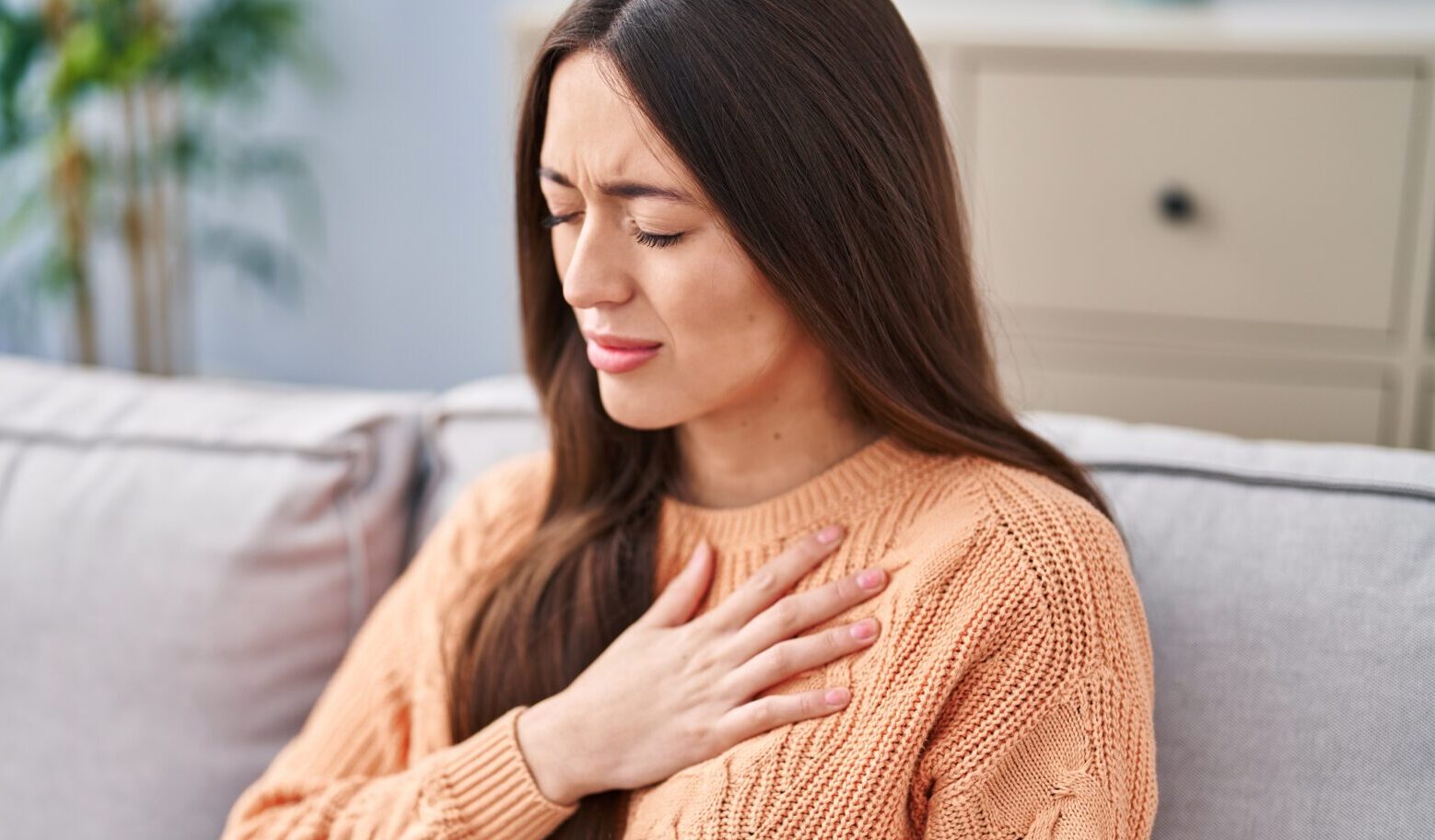According to the Center for Disease Control and Prevention (CDC), over 800,000 individuals in the United States suffer from heart attacks annually. However, a concerning gender disparity emerges within the data: women are more than twice as likely as men to succumb to heart attacks and face a heightened risk of experiencing a subsequent cardiac event within 5-6 years after their initial episode. This discrepancy stems from various factors, including underrecognized or underreported risk factors specific to women, their limited representation in medical research, and instances of misdiagnosis by healthcare providers. Consequently, women often find themselves marginalized in discussions surrounding heart health, leading to potentially life-threatening delays in accessing appropriate care.

At Colorado Springs Cardiology, we believe in the importance of patient education and empowerment to understand the risks associated with heart attacks and advocate for themselves to mitigate those risks. Led by a dedicated multidisciplinary team of cardiologists, cardiac sonographers, and expert nurses, the physicians, physician assistants, and staff at Colorado Springs Cardiology care for more than your heart—we care for you. Instead of just alleviating symptoms or generalizing a diagnosis, we seek to identify and treat the underlying problems that can lead to a heart attack with personalized treatment plans tailored to your unique needs so we can create a sustainable pathway to better long-term health.
A heart attack, scientifically termed as myocardial infarction, occurs when there is a significant reduction or complete blockage of blood flow to the heart. This restricted blood supply results in the death of tissue within the heart muscle.
The primary cause of these blockages typically stems from the accumulation of cholesterol and fatty deposits within the coronary arteries, a process known as atherosclerosis. Over time, this buildup can progress to coronary artery disease, the most prevalent form of heart disease and the leading trigger for heart attacks. Given the insidious nature of this gradual buildup, heart disease, including coronary artery disease, is often referred to as the “silent killer” due to the absence of overt symptoms.
Heart disease stands as the primary cause of death among women, claiming the lives of over 300,000 individuals in the United States alone. While not all women diagnosed with heart disease will experience a heart attack, the risk factors associated with heart attacks often overlap with those linked to heart disease. These risk factors exert a more pronounced impact on women, elevating their risk as compared to men. Moreover, women are more susceptible to heart attacks unrelated to heart disease, posing challenges for accurate diagnosis by healthcare providers.
Heightened levels of stress, anxiety, and depression can further exacerbate a woman’s susceptibility to developing heart disease and experiencing a heart attack.
Heart attacks may happen suddenly, but often, there are preceding warning signs and symptoms that can vary in duration from hours to weeks, and they can differ from person to person. While some individuals may experience mild to severe symptoms, others may not exhibit any symptoms at all.
Women, on the other hand, may experience these typical symptoms as well as a range of other indicators that could signal a heart attack. However, due to historical focus on male heart attack symptoms, many women may overlook or misinterpret these other signs.
These differences in symptoms can be attributed to various factors, including hormonal influences and physical disparities in coronary arteries. For instance, women in later stages of pregnancy or in the postpartum period may exhibit signs of heart disease due to hormonal fluctuations affecting the body, including arteries. Furthermore, declining estrogen levels before, during, and after menopause can diminish the heart’s protective mechanisms against damage. Pregnancy-related factors such as stress, weight gain, or poor dietary habits can also contribute to compromised heart health.
In terms of arterial physiology, women typically have smaller blood vessels compared to men, which can impact blood flow to the heart. Blockages in women’s arteries are more likely to occur in smaller vessels, where buildup may be less conspicuous, resulting in less intense pain and potentially leading to delayed diagnosis.
If you suspect you might be having a heart attack or begin experiencing any of the symptoms mentioned, it’s crucial to seek help immediately and follow these steps:

It’s important to note that statistics indicate women are two to three times more likely than men to face adverse health outcomes following a heart attack, including death. Therefore, even after experiencing a heart attack, women should prioritize seeking additional monitoring and medical follow-ups. This includes referrals to cardiac rehabilitation programs and diligent management of diabetes, blood pressure, and cholesterol levels to minimize the risk of future heart attacks and long-term damage.
Prompt and immediate treatment during a cardiovascular episode, such as a heart attack, can often be the deciding factor between life and death. With each passing minute post-heart attack, more heart tissue sustains injury or perishes, leading to weakening of the heart muscle and enduring damage. However, since symptoms of a heart attack in women tend to be subtler than those in men, they may be dismissed or overlooked, resulting in potential misdiagnosis or delayed treatment by healthcare professionals.
Even if a heart attack proves non-fatal for a woman, it can significantly impact her overall health. Despite women generally having a lower risk of cardiovascular events compared to men, the consequences are more severe when they do experience a heart attack. They often endure worse short- and long-term outcomes and face increased likelihood of future cardiovascular events and mortality from cardiovascular disease.
While direct causal relationships remain unclear, several factors may contribute to this phenomenon. Women typically experience heart attacks at an older age, nearly 70 on average, compared to the average age of 66 for men. Additionally, women may have more undiagnosed or untreated underlying health conditions or risk factors, amplifying the severity of heart attack-induced damage. Furthermore, the decline in estrogen levels during and after menopause, a hormone that offers some degree of heart health protection, could also play a role.
Given that many symptoms of a heart attack in women can overlap with those of seemingly unrelated conditions—ranging from gastrointestinal issues or heartburn to stress and anxiety—it’s imperative for women to recognize all potential signs of a heart attack and trust their instincts if they sense something is amiss. Moreover, if they feel their symptoms are not being taken seriously by their physician, they should seek further testing and obtain a second opinion.
Heart disease in women is concerning, but it doesn’t have to be fatal.Taking proactive steps for heart health, such as undergoing regular screenings, making nutritious food choices, and engaging in regular exercise, are essential. Equally crucial is being able to identify the warning signs of a heart attack and taking prompt action when symptoms emerge.
While heart attacks can often be preventable, many women either misunderstand or underestimate their risk, making it also important to work with a doctor who has the time and expertise to listen attentively and recognize symptoms not based on assumptions of what they likely are not, but on what they could possibly be.
Colorado Springs Cardiology is a pioneer in diagnosing and treating structural heart disease and its associated conditions, including heart attacks; we were the first cardiology team in the state to introduce a specialized heart treatment program aimed at identifying, addressing, and mitigating the risks of poor heart health. We embrace a personal, patient-centric approach to care and, thanks to a team of board-certified cardiologists and specialized experts that have received education and training from leading global institutions, we can offer the versatile, innovative, and advanced treatment options women need to live their healthiest lives possible.
Today is the day to start understanding the risks and symptoms of a heart attack. Schedule an appointment with Colorado Springs Cardiology and take the first step toward a healthy heart.